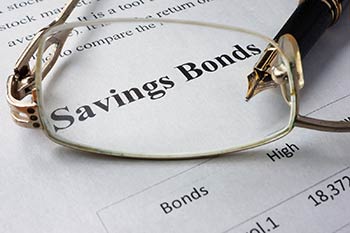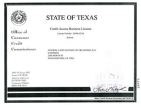What are Savings Bonds?
Savings bonds have been in rotation since 1941, so many people associate them with the World War II era. However, these investments are still popular today - and with good reason! A savings bond may be one of the safest and smartest investments that you can make. Plus, they carry a number of unique benefits that you won't find from any old check or stock portfolio. Learn all about the advantages of savings bonds, and get ready to invest in your future!

A Safe Investment
Savings bonds are known for being a safe and secure way to invest your money, but why is that? Bonds are backed by the federal government, which can be a huge benefit to you. This means that bonds are quite a bit more stable than a riskier investment, like the stock market. While you can't get the funds as quickly as a cash advance or a loan, the advantages are often worth the wait. And even if you lose the certificate itself, you can get a replacement. Just fill out a Form PDF 1048 from a financial institution with your information, and you can get a brand new certificate promptly.
Accessible Funding
Savings bonds are also quite versatile. While some investments require a huge amount of money up front, you can get a savings bond with as little as 25 dollars! That's one reason that savings bonds are such a popular choice for graduation gifts. Plus, the bond will mature and increase in value with time. So, that 25 dollar investment can grow to double the size as it matures! Unlike stocks, there are no seller's fees to worry about. Where can you get a savings bond?
- Banks or credit unions
- Federal Reserve banks (phone or mail)
- The Bureau of Public Debt
Types of Bonds
If you're interested in buying a savings bond, you'll need to figure out which type you need.
- Series EE bonds have a face value that ranges from 50 to 10,000, and they receive 30 years of interest. These bonds are issued for half of their face value.
- Series HH bonds earn 20 years of interest, and their face value ranges from 500 to 10,000 dollars. These bonds are only available if you exchange a Series E or EE bond, but they aren't available to purchase in the present.
- Series I bonds range from 50 to 10,000 in face value with 30 years of interest. They are issued at the full face value.
Redeeming Certificates
How do you redeem your savings bond? Head to the bank! The same places that issue savings bonds also redeem them, so banks and credit unions are often the most convenient places to go. You can also redeem bonds of the deceased, as well as some family members. However, you may need to consult the nearest Federal Reserve Bank to process the request.
Taxes
Savings bonds have unique tax benefits. While the earnings of your Series HH bonds are taxed, Series E and I bonds are different. You can defer taxes for a long period of time, unlike many other investments. Additionally, savings bonds for children are usually not taxed. So consider picking up a savings bond as a birthday gift for the little ones in your life!
